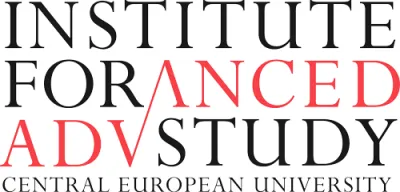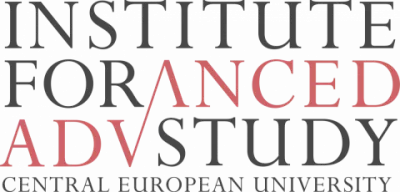Hungary

Modalities of Resilience and Resistance: Academia and Society in Illiberal Times
The Institute for Advanced Study (IAS CEU) together with the Democracy Institute (DI) and the Blinken OSA Archivum (OSA) at the Budapest site of CEU are pleased to announce their joint call for applications for its thematic fellowship program Modalities of Resilience and Resistance: Academia and Society in Illiberal Times for the academic year 2026/27.
The three Budapest-based units of CEU invite applications for their joint fellowship call. In various capacities, the Democracy Institute, the Blinken OSA Archivum and the Institute for Advanced Study are engaged in research, teaching and public program series focusing on the cultural, political, social, legal, economic, aesthetic and epistemic problems posed by the rise of autocratic governments and regimes in the last two decades worldwide. These regimes use new techniques of mobilization and undermine traditional conceptions of truth, verification, and falsification; they merge populist, neoliberal, religious fundamentalist, biopolitical and other ideological components into a new mix that subverts the liberal democratic institutional system.
The present call focuses on analyzing the morphology of these tendencies and regimes, as well as on the ways of defying and resisting them. We seek to pay special attention to the transnational entanglements of these regimes and ideologies as well as of those who contest them. Our aim is to pursue this in a multidisciplinary manner, creating new synergies between different fields and methodological traditions. We seek to involve in this dialogue scholars at risk from different contexts whose work is also shaped by their own lived experience. We thus seek to reflect together on the entanglement of research, teaching, and civic engagement in an autocratic context. Our fellowship program is also meant as a pilot project for the Global Invisible University framework in the making as an innovative new format coordinated by CEU’s Budapest site. This project builds on the Global Forum organized by the Democracy Institute, as well as CEU’s engagement with different groups of scholars and students at risk (including the Invisible University for Ukraine and various Southeast European and Southeast Asian academic networks among others).
Along these lines, this thematic call is addressed to scholars, artists and media professionals from all disciplines and fields who are interested in exploring the ways in which these autocratic regimes and movements are contested, resisted, and critically analyzed and how we can learn from each other while seeking to preserve academic freedom in the context of increasingly interconnected illiberal projects. The call has no regional preference.
Fellowships are available in all research areas of the social sciences and humanities, broadly defined and for artists of all fields of practice who can link their artistic work to these questions. Fellowships run for the full 9-month period (OctoberJune), for the 3-month short fall semester (October-December), the 5-month fall semester (October-February) or the 6-month spring semester (January-June).
Fellows are chosen through a rigorous selection process, which includes stages of pre-selection and peer reviews as well as a final decision made by an independent, interdisciplinary, and international selection committee. The Institute and her partners are committed to the pursuit of cutting-edge interdisciplinary scholarship and will seek innovative research proposals. Young scholars with demonstrable promise of excellence will be considered; established senior scholars are expected to have solid records of first-rate scholarship. Scholars at risk are especially encouraged to apply. A primary criterion for selection is the expectation that each fellow’s stay at the Institute will yield original and significant research results in conversation with other fellows working on the broad topic of Modalities of Resilience and Resistance, and how these research results can also be redeployed in the educational process and in the civil sphere.
IAS CEU is an independent Institute for Advanced Study based at the Budapest site of Central European University. CEU operates at two locations, with the main campus in Vienna and several research institutes and centers in Budapest. Located in the heart of one of Central Europe's most attractive cities, IAS CEU seeks to benefit from this arrangement and to be part of the rich academic life and research generated in both places. The Budapest site hosts, besides the IAS, a part of the CEU Library, the Blinken OSA Archivum, the Democracy Institute, the Center for Ethics and Law in Biomedicine, and the Summer University (SUN), as well as various research units and non-degree education programs. For further information, please refer to the Institute's website at https://ias.ceu.edu.
The Budapest site provides a stimulating environment in which fellows can devote themselves to research and share their work with peers both at the Institute and the other units of the University in Budapest and Vienna, through weekly seminars and other community programs. Fellows have access to all CEU facilities, including seminar and conference space, computer services, and library resources. They benefit from CEU’s vibrant international atmosphere, its strong regional ties in Central and Eastern Europe, and its international scholarly networks. CEU facilitates the fellows’ engagement with CEU and with Hungarian and Austrian, regional and international scholarly communities by encouraging collaborative projects, organizing joint public lectures and related activities.
Fellows of this program receive a monthly stipend and accommodation in the Raoul Wallenberg Guesthouse, located in the Castle district. Fellows are expected to reside in Budapest during their fellowship year, participate in the intellectual life of the Institute, and pursue their research agenda.
- Applicants must hold a Ph.D. or equivalent in the social sciences or humanities at the time of their application. Artists should hold a relevant university degree.
- Only those with publications in internationally recognized scholarly outlets will be considered. Artists should provide a commensurable strong trackrecord.
- Junior fellows must have obtained a Ph.D. degree issued in 2018 or later and must apply for the junior fellowship. Candidates who obtained their Ph.D. before 2018 are considered “senior” and must apply for the senior fellowship.
- Former full time CEU employees and students are not eligible to apply for 5 years after the end of their studies/contract (degrees must have been received and contracts must have ended by December 31, 2020 or earlier).
- Part-time/temporary employees of CEU are not eligible for 1 year after their contract ends (their contract must have ended by December 31, 2024 or earlier).
- Former fellows of IAS CEU are not eligible to apply again for a period of 7 years. Applications at an earlier stage may be considered only in exceptional cases.
- Reapplication is possible only 3 times within a period of 5 years.
- Applicants are expected to be able to communicate fluently in English as this is the working language of the Institute and CEU.
- All nationalities are encouraged to apply. However, please be informed that the eligibility of applicants who require a visa for their stay in Hungary may need to be assessed on an individual basis.
Senior Fellows receive a net monthly stipend of 2,600 Euros, Junior Fellows receive a net monthly stipend of 1,500 Euros, and Artists in Residence 2,000 Euros to help support their stay in Budapest. In addition, all fellows and their families receive housing at the Raoul Wallenberg Guesthouse. Utilities at the Guesthouse will be charged to the Fellows. Fellows are also responsible for their own travel and health care provisions.
All applications must be submitted through our online application system:
Prepare your application package: create a single pdf file no larger than 12 MBs containing all your application documents. The name of the pdf file should contain your name and the type of fellowship you are applying to. Examples: Smith, Evelyn_BOSF_Junior OR Taylor, Judith_BOSF_Senior OR Rodriguez, Jose_BOSF_Artist.pdf
Application packages submitted by junior/senior scholars should contain the following documents (only applications complying with the requested format and word counts will be considered for review):
- A letter of intent (max 1000 words)
- The abstract of your research project (max. 150 words)
- A description of your research project (min. 1000 - max. 2500 words; the reference list is not included in the word count)
- A description of the applicant’s ideas on linking research, teaching, and civic engagement in the context of the rise of illiberalism (max. 1500 words)
- A CV (max. 5 pages)
- References: for junior applicants ONLY: please include the name and email address of two referees (for potential reference).
Application packages submitted by artists should contain the following:
- Cover letter indicating how the fellowship is beneficial for the artistic project (max. 1000 words)
- Abstract of the project (max. 200 words)
- Project plan which describes a concrete project that can be developed while in residence, identifying any technical support needed (max. 1500 words, not counting references; possible additional video material)
- A description of the applicant’s ideas on linking research, teaching, and civic engagement in the context of the rise of illiberalism (max 1500 words)
- CV (max. 5 pages), including a list of published works and/or portfolio (the selection committee might request samples at a later stage)
Questions and comments may be sent to IAS_applications ceu [dot] hu (IAS_applications[at]ceu[dot]hu)
ceu [dot] hu (IAS_applications[at]ceu[dot]hu)
